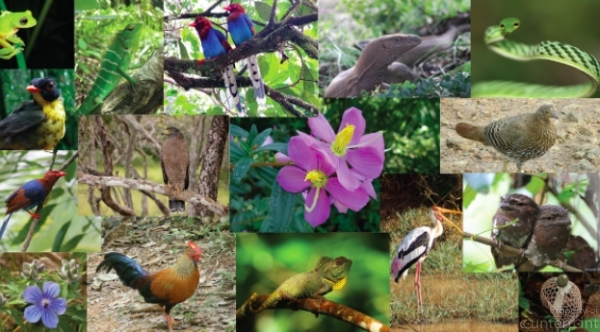Over a 100 countries celebrate World Environment Day each year on June 5th.
And this year the theme is “Time for Nature” with a focus on biodiversity.
The lockdowns imposed on several countries across the world owing to COVID- 19 had one positive result; the environment quality parameters got better. But that is not to say that we are protecting this earth or that other forms of environmental destructions are not continuing.
In Brazil, Jair Bolsanaro has given Amazonian lands to many multinational companies, which have accelerated the destruction of the Amazon. This will cause many environmental issues around the world. Globally, all rainforests are under threat owing to the many development programmes that are being carried out, and forests pay the cost. Even though the largest forest cover in the world is decreasing, chances of arresting the trend are low, as the world focuses on the global economic crisis. Now, businesses will be more interested in doubling their production and recovering the losses incurred during the lockdowns.
A downturn of the lockdown was that more animals got killed, by people who had to stay home and had time on their hands. In Sri Lanka, on May 29th a rare black leopard, caught in a snare, died of its injuries.
When the cities became deserted during the lockdowns, wild animals were able to roam free, and many were caught on camera wondering around in areas that used to be usually busy streets filled with people. But now, with the lockdowns being eased, would animals be able to return to the jungles on time?
Many people also began cultivating home gardens in earnest, during the lockdown, be it on a small strip of land or on apartment balconies. But their lack of knowledge in agricultural practices and organic farming resulted in these people opting for artificial fertilizer and pesticides for their crops. As we know, Agri-chemicals have a huge, negative impact on bees, butterflies, other animals, trees and even humans.
The world today, has three main concerns; economic, social and environment. But the first two have elbowed out the third; multinational companies continue to use new land for mono-cultivation, destroy local environment and increase pollution, around the world.
But mother earth will respond to this destruction, and the results will be felt by all, because there is no difference between the rich and the poor when it comes to nature.
Furthermore, when companies recommence production, the climate crisis will become worse. For nearly 200 years, industrialization moved at a slow pace, and it gave nature time to adapt. Now, after the two and half month break, businesses will accelerate production, and the environment may never get a chance to adapt.
But, we still have a chance to save the earth; it is only a matter of changing our lifestyles, and one that must be friendly to mother earth. It must not be like war, where everyone gets killed, but one which should be less of a burden to the economy and the environment.
Just be aware that the next crisis we face may be even worse than COVID-19. That is all we need to be mindful of, to adjust our lifestyles and save Mother Nature.
Dr. Kariyawasam is an environmentalist and heads the Centre for Environmental and Nature Studies.





